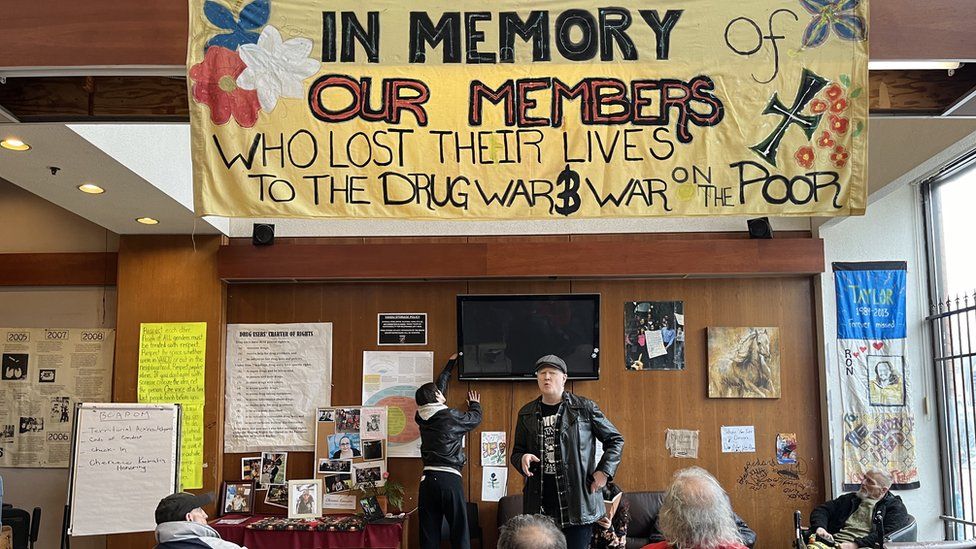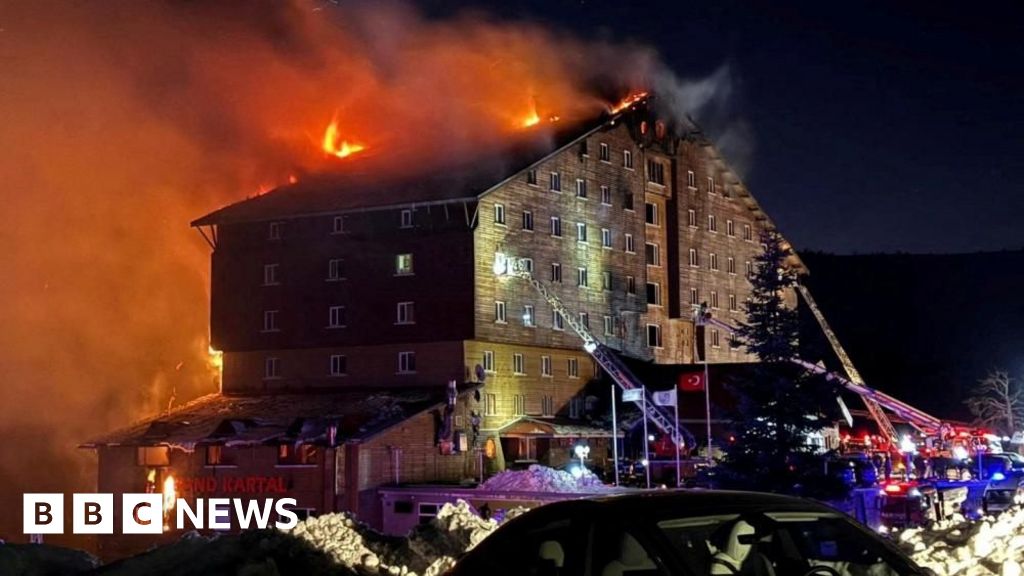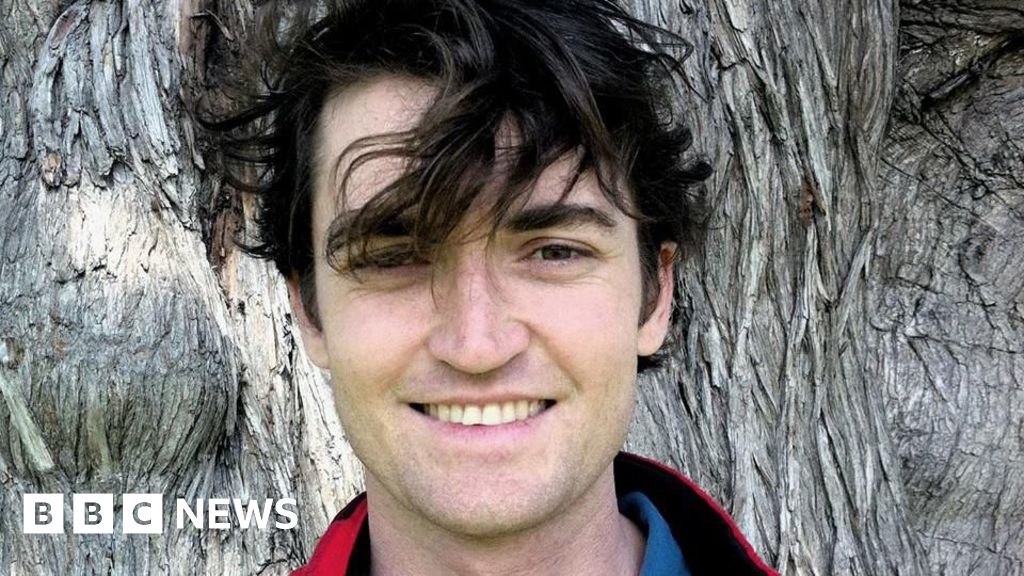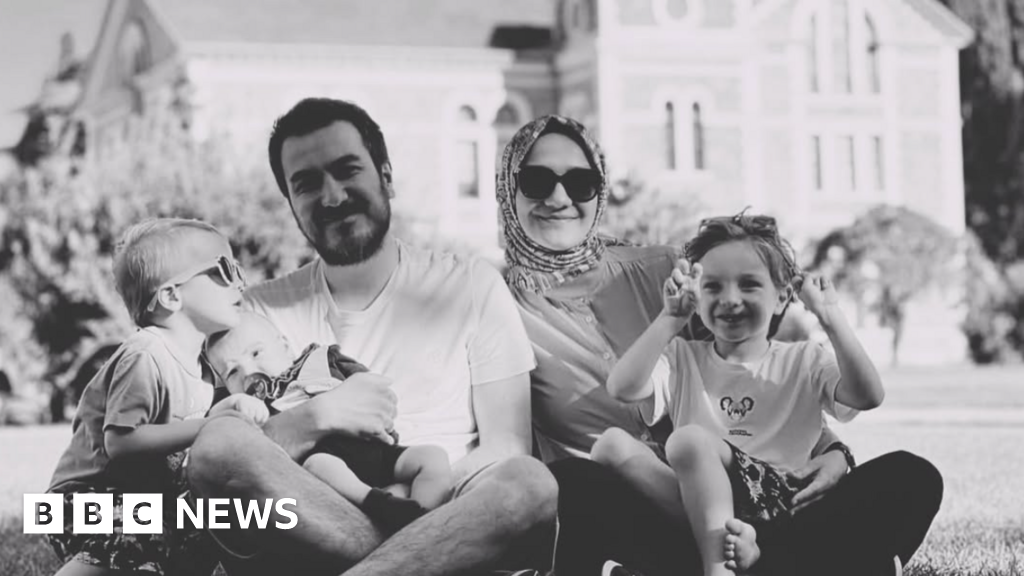ARTICLE AD BOX

In 2023, British Columbia hit a grim milestone of more than 2,500 drug overdose deaths
By Nadine Yousif
BBC News, Vancouver
Last year, British Columbia became the first province in Canada to decriminalise the use of hard drugs as part of its efforts to tackle a deadly opioids crisis. But the policy is facing pushback, leaving its future uncertain.
Every Monday, former Vancouver Mayor Kennedy Stewart would receive an email listing all the people who had died in the city from a drug overdose the previous week.
One day, three years ago, that list included the name of a relative - his brother-in-law's sister, Susan Havelock.
"She died out here on the street at two o'clock in the morning," Mr Kennedy told the BBC at his office in Downtown Vancouver, pointing out the window.
"When it gets in your family, you begin to see how desperate this whole situation is."
North America is in the midst of a toxic drug crisis. Fatal overdoses peaked above 112,000 in the US for the first time last year.
In Canada, nowhere is this issue felt more acutely than in British Columbia (BC), where the crisis was first declared a public health emergency in 2016. Last year, the province saw a record of more than 2,500 overdose deaths.
About 225,000 people are estimated to use illegal drugs in BC, and experts say a toxic street drug supply - laced with fentanyl and other products - places each of them at risk of death.
In an attempt to address the crisis, in January 2023 BC became the first - and only - province in Canada to decriminalise the possession of a small amount of hard drugs, to "reduce the barriers and stigma" that bar those with severe drug addiction from life-saving help or treatment.
The BC programme, which runs on a pilot basis until 2026, allows adults to possess up to 2.5 grams of cocaine, methamphetamine, heroin or fentanyl without being arrested, charged or having their drugs seized, except around schools and airports.
But just over a year into the project, it's come under increasing pressure from some residents and political opponents, who have called it a "harmful experiment" implemented without safeguards for the public, one that has "utterly failed" to reduce drug overdose deaths.
BC has since introduced a bill that would expand places where drug use is prohibited to include not just schools and airports but playgrounds and near homes and businesses - a move blocked, for now, by the BC Supreme Court over concerns it would cause "irreparable harm" to people who use drugs.
Now, supporters of decriminalisation fear that public buy-in for the policy is eroding.
"It's really unfortunate," said Deputy Chief Fiona Wilson of the Vancouver Police Department, who also serves as the president of the BC Association of Chiefs of Police.
"At the end of the day we're all rowing in the same direction with respect to the fact that we don't want to criminalise people by virtue of their drug use, which should be treated as a health matter."
It's a debate felt not just in the bigger cities like Vancouver, but in places like Port Coquitlam, a suburb of 60,000 people east of Vancouver rich with walking trails, public parks and single-family homes.
There, it was an altercation during a child's birthday party that was "the last straw" for Mayor Brad West.
Mr West told the BBC that he heard from a family who had spotted a person using drugs near the party, held in a local park. Confronted, the person refused to leave, he said.
"That to me is unacceptable," he said, adding that police have the right to intervene in that situation.
Stories emerged elsewhere of drug paraphernalia found in parks, and of dogs accidentally ingesting opioids found on the ground.
In June, Port Coquitlam unanimously passed its own bylaws to restrict some public drug consumption. Other jurisdictions have followed suit.
Drug harm reduction advocates like Guy Felicella say decriminalisation can help save lives
Decriminalisation is based on the argument that the war on drugs has failed - that arresting people with severe addiction and seizing their drugs could increase their likelihood of overdose by forcing them to find other drugs that may be lethal. A criminal record may also bar them from finding a stable job, reducing the chance of recovery.
"I got thrown in jail for nine months for a half-a-gram of cocaine," said Guy Felicella, a Vancouver-based advocate for drug harm reduction and recovery, who recovered from drug addiction after overdosing six times in 2013.
Decriminalisation, he said, would have helped reduce his fear of being legally punished - a fear that forced him and others to use in private, out of view from someone who could call for help if they overdosed.
Portugal, where drugs were decriminalised in 2001, has drug death rates that are significantly lower than other countries.
Its success inspired efforts in both BC and in the US state of Oregon, which decriminalised drugs in 2020.
But in all three places, the policy has faced pushback, and in Oregon, lawmakers voted in March to reverse it altogether after it was blamed for a rise in public disorder and drug use.
In BC, which has a history of harm reduction advocacy, the government's push to revise its decriminalisation policy was challenged in court over concerns it would lead to an "increased risk of overdose fatality".
So far, the courts have sided with that argument - an outcome that has elicited a mixed reaction.
For Mayor West, the courts are "out of touch with where the public is".
Watch: A recovered addict's view on decriminalisation
"This focus on 'irreparable harm' to a certain group ignores the harm that occurs to others by allowing rampant public drug use," he said.
But these sentiments have been countered by supporters of decriminalisation, like the province's outgoing chief coroner, who has said there is no evidence that suggests the general public is at risk from public drug use.
"It's not comfortable seeing people use drugs in public," Lisa Lapointe said in an interview with local news outlet CityNews in January.
"But who's most uncomfortable? Is it those of us who get to return to our warm homes? … Or is it those living unhoused, who are trying to cope the best way they know?" she said.
In Vancouver's Downtown Eastside, a historic neighbourhood that has long-grappled with social issues like poverty and drug use, advocates have accused politicians of sowing "moral panic".
"Scapegoating and vilifying people who use drugs has (historically) been a real good vote-getter," said Garth Mullins, a member of the Vancouver Area Network of Drug Users.
There is no data on how much public consumption in BC has increased post-decriminalisation, but there has been a 76% drop in drug possession charges in the first year of the policy.
Former Vancouver Mayor Kennedy Stewart was behind the push to bring decriminalisation to his city
Data also shows that the use of drug checking services - where people can test their drugs for fentanyl and other substances - and overdose prevention sites - where people can use drugs under supervision - has increased.
Deaths, however, have continued to rise. Since decriminalisation, reported opioid-related toxicity deaths increased by nearly 5%.
Ms Lapointe, the province's outgoing chief coroner, has dismissed any link between decriminalising drugs and that rise, saying "illicit fentanyl is responsible" for the fatalities.
She and other public health officials maintain that decriminalisation is only one tool of many to address the crisis.
Mr Stewart, mayor of Vancouver from 2018 to 2022, was a driving force behind the initial push to decriminalise drugs in BC.
He lost his re-election bid by 23,000 votes to Ken Sim, a center-right mayoral candidate who campaigned on a promise to hire more police officers and clear homeless encampments in Vancouver's Downtown Eastside.
Mr Sim also supports the province's push to restrict some public drug use - signalling a political shift in the major metropolis.
In a statement to the BBC, Mr Sim says the drug crisis is "devastating" and "deeply personal for many Vancouverites and British Columbians".
But he believes a "delicate balance" needs to be struck between supporting people with severe addiction and "keeping areas safe for children and families".
Mr Stewart believes Vancouverites have changed in recent years - with skyrocketing real estate values and rising costs due to inflation, he argues some people have become more insular.
One thing that has not changed, he notes, is the severity of the drug crisis.
"Those emails are still rolling into this new mayor's inbox every Monday," Mr Stewart said.

 9 months ago
525
9 months ago
525








 English (US) ·
English (US) ·